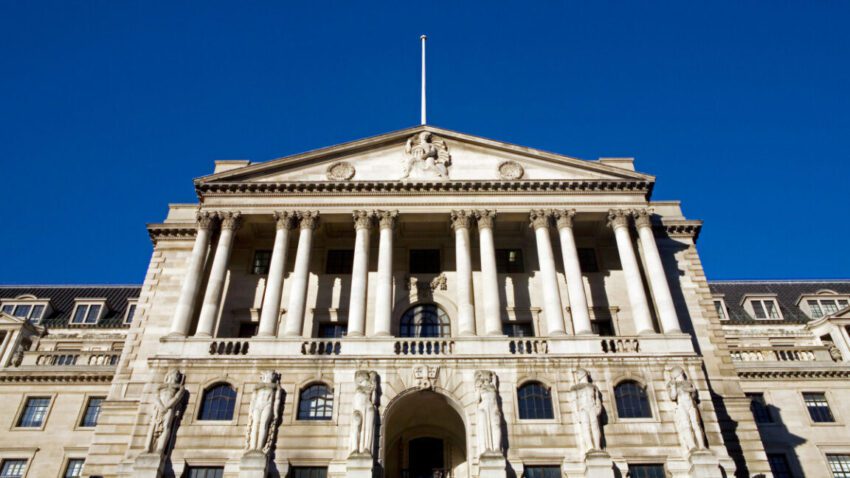
bank of england warns ai stock bubble The Bank of England has issued a stark warning regarding the potential for an AI-driven market bubble that could rival the infamous dotcom bubble of the early 2000s.
bank of england warns ai stock bubble
Context of the Warning
In recent years, the rapid advancements in artificial intelligence (AI) have captured the attention of investors, businesses, and governments alike. The technology, which has seen exponential growth and adoption across various sectors, has led to a surge in stock valuations for companies heavily invested in AI. This trend has raised concerns among financial regulators and market analysts about the sustainability of such valuations.
The Bank of England (BoE) has joined a growing list of voices cautioning against the potential pitfalls of an AI-fueled market bubble. Notable figures such as OpenAI CEO Sam Altman and Amazon founder Jeff Bezos have also expressed concerns about the risks associated with inflated stock prices in the tech sector. The BoE’s warning, articulated in its quarterly report, highlights the increasing apprehension surrounding the financial implications of AI technologies.
Key Findings from the Bank of England’s Report
The BoE’s report, which stemmed from a recent meeting of its Financial Policy Committee (FPC), outlines several critical observations regarding the current state of the market. The committee noted that U.S. stock valuations, particularly those of AI-focused companies, bear striking similarities to the metrics observed at the peak of the dotcom bubble in 2000. This comparison serves as a cautionary tale for investors and regulators alike.
Market Valuations and Comparisons
According to the report, AI companies have come to represent an unprecedented portion of overall market value. This phenomenon is reminiscent of the late 1990s when internet-based companies experienced meteoric rises in stock prices, often without corresponding revenues or sustainable business models. The BoE’s analysis suggests that the current market environment may be similarly speculative, with investors driven by hype rather than fundamentals.
Increased Risk of Market Correction
The BoE’s assessment indicates that the risk of a sharp market correction has escalated. The committee stated, “the risk of a sharp market correction has increased,” marking this as its most robust warning to date regarding potential declines driven by AI market dynamics. This statement underscores the seriousness with which the central bank views the current financial landscape.
Implications for the Financial System
The implications of a potential AI-driven market correction extend beyond the tech sector. The BoE highlighted that spillover risks to the broader financial system in the UK could be “material.” This concern reflects the interconnected nature of global financial markets, where shocks in one region can reverberate across borders, affecting economies worldwide.
Potential Consequences for Investors
For investors, the BoE’s warning serves as a crucial reminder to exercise caution and due diligence. The allure of AI technologies has led many to invest heavily in companies that promise groundbreaking advancements. However, as the BoE points out, the sustainability of these investments is questionable, particularly if market sentiment shifts. A sudden downturn could result in significant financial losses for those who have heavily invested in AI stocks.
Regulatory Considerations
The BoE’s warning also raises important questions about the role of regulatory bodies in overseeing the burgeoning AI sector. As the technology continues to evolve, regulators must grapple with the challenges of ensuring market stability while fostering innovation. The central bank’s concerns may prompt a reevaluation of existing regulatory frameworks to address the unique risks posed by AI-driven market dynamics.
Reactions from Industry Stakeholders
The Bank of England’s warning has elicited a range of reactions from industry stakeholders. Some investors and analysts have expressed agreement with the central bank’s assessment, acknowledging the potential for a market correction. Others, however, remain optimistic about the long-term prospects of AI technologies and argue that the current valuations are justified by the transformative potential of the technology.
Voices of Caution
Prominent figures in the tech industry, including Sam Altman and Jeff Bezos, have echoed the BoE’s concerns. Altman, in particular, has highlighted the need for responsible investment practices in the AI sector. He has urged investors to focus on companies with sound business models and sustainable growth strategies, rather than succumbing to the allure of speculative investments.
Optimistic Perspectives
Conversely, some industry leaders maintain that the current enthusiasm for AI is warranted. They argue that the technology has the potential to revolutionize various sectors, from healthcare to finance, and that the investments being made today will yield significant returns in the future. This perspective suggests that while caution is warranted, the long-term benefits of AI may ultimately outweigh the risks.
Historical Context: The Dotcom Bubble
To fully grasp the implications of the BoE’s warning, it is essential to understand the historical context of the dotcom bubble. In the late 1990s, the internet emerged as a transformative technology, leading to a surge in the creation of tech startups. Many of these companies saw their stock prices soar, often based on speculative investments rather than solid financial fundamentals.
When the bubble burst in 2000, it resulted in significant financial losses for investors and a prolonged downturn in the tech sector. The lessons learned from this period serve as a cautionary tale for today’s investors, particularly in light of the BoE’s warning about the potential for an AI-driven market correction.
Future Outlook for AI and Financial Markets
The future of AI and its impact on financial markets remains uncertain. While the technology holds immense promise, the risks associated with inflated valuations cannot be ignored. The BoE’s warning serves as a crucial reminder for investors to remain vigilant and informed as they navigate the evolving landscape of AI investments.
Strategies for Investors
In light of the BoE’s report, investors may consider adopting several strategies to mitigate risk:
- Diversification: Spreading investments across various sectors can help reduce exposure to any single market downturn.
- Focus on Fundamentals: Prioritizing companies with strong financials and sustainable business models can provide a buffer against speculative bubbles.
- Stay Informed: Keeping abreast of market trends and regulatory developments can help investors make informed decisions.
The Role of Education and Awareness
As the AI landscape continues to evolve, education and awareness will play a crucial role in shaping investor behavior. Financial literacy programs that focus on the unique risks associated with emerging technologies can empower investors to make informed choices. Additionally, fostering a culture of responsible investing can help mitigate the potential for speculative bubbles in the future.
Conclusion
The Bank of England’s warning regarding the potential for an AI-driven market bubble underscores the need for caution in the face of rapidly changing technological landscapes. As investors navigate this complex environment, it is essential to remain vigilant and informed, drawing on historical lessons while embracing the transformative potential of AI. The balance between innovation and risk management will be critical in shaping the future of financial markets.
Source: Original report
Was this helpful?
Last Modified: October 9, 2025 at 3:36 am
7 views















